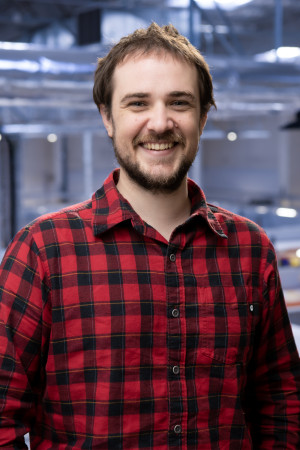Published Jun 19, 2024

Adam Francis
Dr Adam Francis is a scientist at the renowned Robinson Research Institute, a research centre within Victoria University that specialises in superconductivity. He's recently joined the KiwiNet Emerging Innovators programme to find out how to bring his innovations to market.
After graduating with his PhD in Physics from Victoria University in 2022, Adam Francis joined the Robinson team in charge of developing a small, efficient superconducting flux pump that can power superconducting machines and magnets without contact.
The team recently secured KiwiNet funding to further develop the technology to become investor-ready, in one of the largest investments ever made by the committee.
“It shows both the revolutionary power of this technology and the committee’s belief in the capability of the outstanding researchers at the Robinson to bring it to fruition,” says Wellington UniVentures senior commercialisation manager Adam Podmore.
He adds, “I was pleased to nominate Adam for the Emerging Innovators programme to grow his business skills. Adam is an integral part of the flux pump team. He already brings exceptional technical expertise, and the entire team will benefit from the commercialisation knowledge and networks he will gain from the programme."
Superconductive materials are special because they don’t lose energy from resistance, making them incredibly efficient. More and more, these materials are being used in machines and magnets across a wide range of industries, from aerospace to scientific instruments and fusion energy production.
Adam Francis says, “Although futuristic-sounding, this is a proven technology that only needs a few tweaks to be applied in a commercial sense, which is really exciting.”
“The application of accurately controlled flux pumps represents a paradigm shift, which will improve existing superconducting technology and allow more fields to embrace the advantages of superconductivity. We can finally get rid of copper-based power supplies in many applications, drastically reducing total system heat, weight, size and power loss,” he explains.
Adam is excited to learn about the business side of science and technology, recognising that commercialisation is an effective path to research impact that at the same time contributes to New Zealand’s deep-tech economy.
